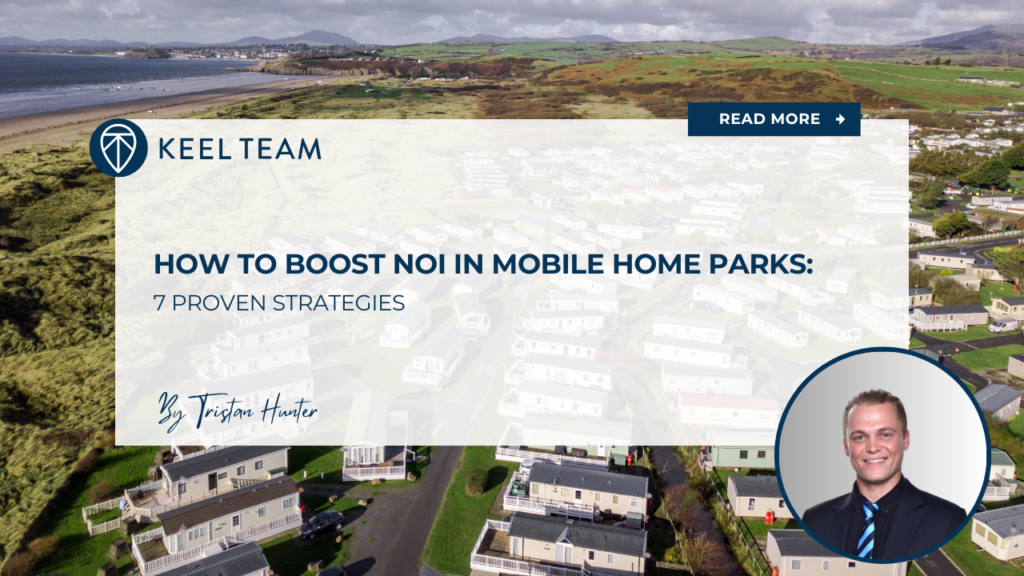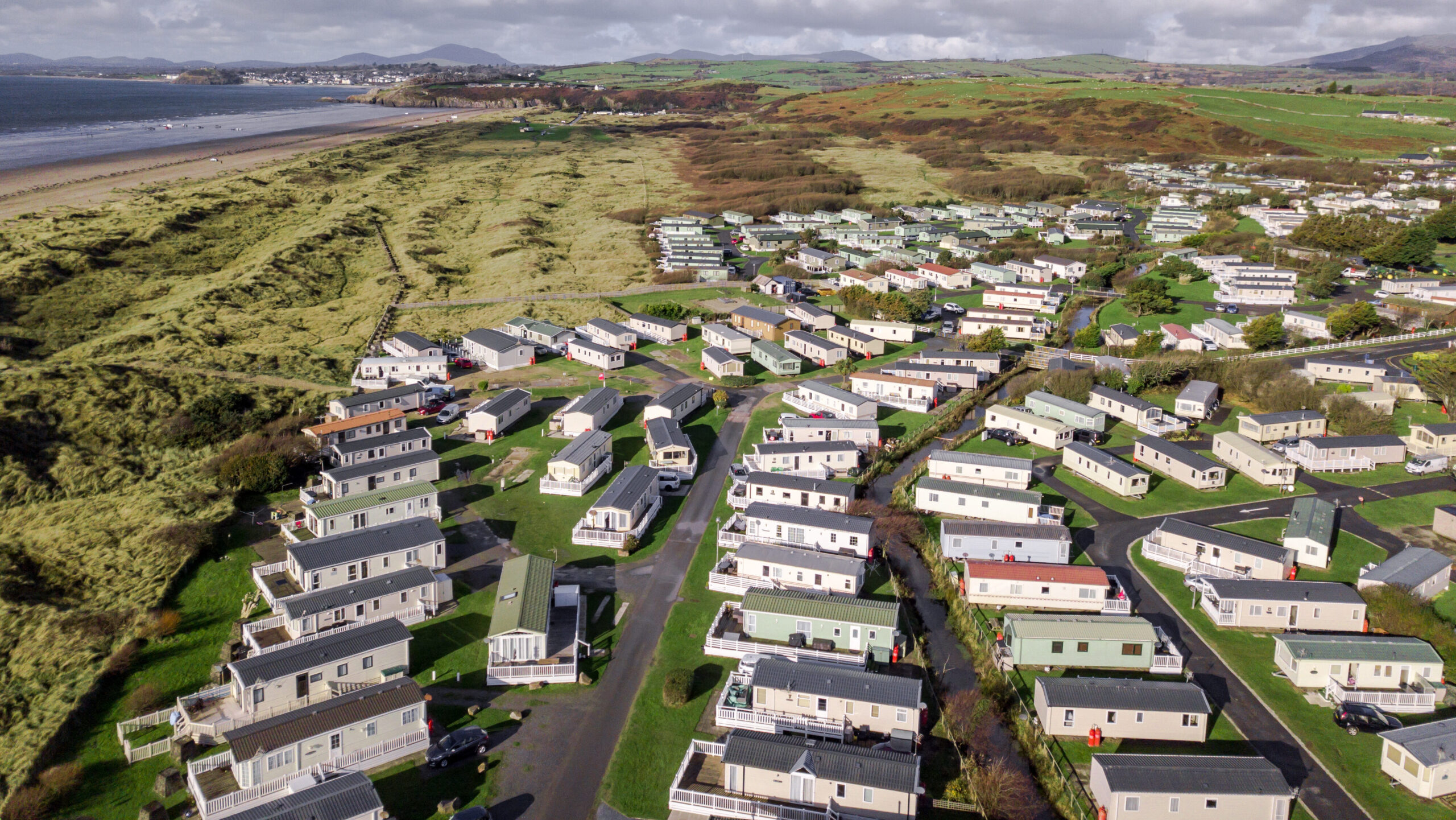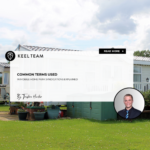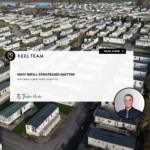How to Boost NOI in Mobile Home Parks: 7 Proven Strategies
-
 Tristan Hunter - Investor Relations
Tristan Hunter - Investor Relations

Mobile home park investing offers a compelling opportunity for generating steady cash flow, particularly when you focus on boosting Net Operating Income (NOI). NOI, the profit after operating expenses but before debt service, may significantly influence a mobile home park’s value and appeal to investors. By implementing strategic management and operational improvements, you might enhance NOI and potentially elevate your returns. Here, we explore seven proven strategies that could help increase NOI in mobile home parks. These actionable tips, grounded in industry practices, aim to optimize revenue and control costs effectively.
Understanding NOI in Mobile Home Park Investing
Before diving into strategies, let’s clarify NOI’s role. NOI reflects a mobile home park’s operational efficiency, calculated as total revenue minus operating expenses like utilities, maintenance, and management fees. A higher NOI might signal a more valuable property, as investors often use it to determine cap rates and property valuations. For instance, a $10,000 annual NOI increase at a 10% cap rate could add $100,000 to a mobile home park’s value. With this in mind, let’s explore how to potentially boost NOI.
Strategy 1: Optimize Lot Rent Pricing
Evaluate Market Rates
Adjusting lot rents to align with local market rates may significantly boost revenue. Research comparable mobile home parks within a 50-mile radius to gauge competitive pricing. For example, if nearby mobile home parks charge $400 per lot and you charge $350, a modest $10 monthly increase across 50 lots could add $6,000 to annual revenue.
Implement Gradual Increases
Sudden rent hikes might upset residents, so consider gradual increases, such as 3-5% annually, tied to inflation or market trends. Communicate changes transparently, explaining improvements like upgraded amenities to justify the adjustment. This approach may maintain tenant satisfaction while enhancing income.
Download our FREE eBook on the Top 20 things to know BEFORE investing in mobile home parks!
Strategy 2: Reduce Vacancy Rates
Attract Quality Tenants
Vacant lots drain revenue, so prioritize filling them quickly. Market your mobile home park through online listings, local classifieds, and social media platforms like X. Highlight desirable features, such as well-maintained grounds or community events, to draw reliable tenants.
Offer Move-In Incentives
To entice new residents, consider temporary incentives like a discounted first month’s rent or waived application fees. These small concessions might reduce vacancy periods, ensuring consistent cash flow. For instance, filling just two vacant lots at $400 each could add $9,600 annually to your NOI.
Strategy 3: Control Operating Expenses
Audit Utility Costs
Utilities, like water and electricity, often rank among the largest expenses in mobile home park operations. Conduct an audit to identify inefficiencies, such as leaky pipes or outdated lighting. Installing water submeters, where tenants pay their usage, could shift costs away from the property, potentially saving thousands annually.
Negotiate Vendor Contracts
Review contracts with maintenance, landscaping, or waste management providers. Solicit bids from multiple vendors to secure competitive rates. Even a 10% reduction in a $20,000 annual landscaping contract might save $2,000, directly boosting NOI.
Strategy 4: Enhance Tenant Retention
Foster Community Engagement
Happy tenants tend to stay longer, reducing turnover costs. Organize low-cost community events, such as holiday gatherings or ice cream socials, to build a sense of belonging. A strong community might lower vacancy rates and stabilize revenue streams.
Address Maintenance Promptly
Respond to maintenance requests swiftly to maintain tenant satisfaction. For example, fixing a broken playground or addressing drainage issues promptly could prevent resident complaints and move-outs. Investing in preventative maintenance might also reduce costly emergency repairs.
Strategy 5: Add Revenue Streams
Introduce Ancillary Services
Diversifying income sources may further increase NOI. Consider offering services like RV storage, laundry facilities, or vending machines. For instance, renting out 10 storage spaces at $50 per month could generate an additional $6,000 annually.
Sell or Rent Mobile Homes
If your mobile home park owns homes, renting or selling them to tenants might create new revenue. Financing home sales through in-house payment plans could attract buyers while generating interest income. Even selling one home for $20,000 might provide a significant NOI boost.

Strategy 6: Upgrade Amenities Strategically
Focus on High-Impact Improvements
Adding or upgrading amenities may justify higher rents and attract tenants. Consider cost-effective upgrades like a new playground, picnic area, or pet-friendly spaces. For example, a $5,000 investment in a community garden might allow a $5 monthly rent increase across 50 lots, adding $3,000 to annual revenue.
Avoid Over-Improvement
Be cautious not to over-invest in amenities that don’t yield proportional returns. A lavish clubhouse might cost $50,000 but only marginally increase rents. Prioritize upgrades that align with tenant needs and local market expectations to maximize NOI impact.
Strategy 7: Leverage Technology for Efficiency
Streamline Operations with Software
Property management software, like Rent Manager or AppFolio, might simplify tasks such as rent collection, expense tracking, and tenant communication. Automating these processes could reduce administrative costs and errors. For instance, saving 5 hours weekly at $20 per hour might cut $5,200 in annual expenses.
Monitor Performance Metrics
Use technology to track key performance indicators, such as occupancy rates, expense ratios, and revenue growth. Regular analysis might reveal opportunities to fine-tune operations. For example, noticing a spike in utility costs could prompt an audit, leading to cost-saving measures.
Potential Challenges and Considerations
While these strategies might boost NOI, challenges may arise. Raising rents could lead to tenant pushback, so balance increases with value-added improvements. Utility upgrades, like submetering, might require upfront costs or regulatory approval, varying by state. Additionally, local market conditions, such as oversupply of mobile home parks, could limit rent growth or occupancy gains. Always research your specific market and consult professionals, such as property managers or accountants, before implementing changes.
Final Thoughts on Boosting NOI
Increasing NOI in mobile home park investing may enhance profitability and property value, but it requires careful planning and execution. By optimizing rents, reducing vacancies, controlling expenses, and adding revenue streams, you might unlock significant financial gains. Enhancing tenant retention, upgrading amenities, and leveraging technology could further streamline operations and boost cash flow. While no strategy guarantees success, these seven approaches, rooted in industry best practices, offer a roadmap to potentially elevate your mobile home park’s performance.
Are you looking for MORE information? Book a 1-on-1 consultation with Andrew Keel to discuss:
- A mobile home park deal review
- Due diligence questions
- How to raise capital from investors
- Mistakes to avoid, and more!
Disclaimer:
The information provided is for informational purposes only and is not investment advice or a guarantee of any kind. We do not guarantee profitability. Make investment decisions based on your research and consult registered financial and legal professionals. We are not registered financial or legal professionals and do not provide personalized investment recommendations.

Tristan Hunter - Investor Relations
View The Previous or Next Post
Subscribe Below 👇





